
Why Lying on Your Resume Is a Bad Idea

Lying on your resume is not a good idea. This may affect a candidate in the long run in his career growth.
The job market today is competitive. Those who are in search of job undoubtedly know how difficult it can be to compete for the top positions. This competitive environment has led a few job seekers to embellish or exaggerate their experience to improve their chances of obtaining jobs. What are the consequences for the employee who has embellished on his resume if he gets caught?
Lying on your resume is not more than a risk. It can have a life-altering impact when the candidates get caught by the recruiters. Read the blog further and know what happens when you lie on your resume, including a few hidden dangers and risks you might not be aware of.
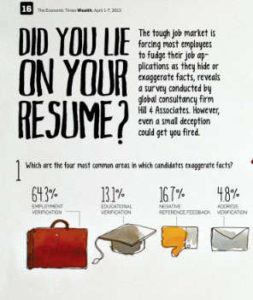
What happens when you Lying on your resume?
- Embellished job titles often sound bogus
One of the popular trends among candidates these days is to embellish their job titles. The basic idea here is that job seekers often worry about their current job titles as they are too mundane or unimpressive to grab the interest of a recruiter. Hence, they tweak those titles to make them sound more important. It seems bogus to experienced recruiters. So, adhere to the truth when it comes to your past job titles and avoids arousing suspicion.
- Your past references can poke holes in your present story
False job titles embellished lists of job duties, and inaccurate hiring dates may seem like things that could help your chances of getting hired. However, keep in mind that recruiters do call references. Even if you don’t mention an old employer, your previous boss is still likely to get a phone call.
Employers will verify the resume information of their most serious applicants. That may include a call to the HR department at the company you used to work. HR representatives won’t usually tell too much about former employees, but they will confirm or deny essential information like job titles, duties, and the date of hire.
This information can alone poke a hole in any story you are trying to fabricate on your resume.
- Verification checks can spot fake credentials like degrees or certifications
Calls to the previous boss and references aren’t the only verification checks that recruiters do. Many employers run a background check. Most of them will verify at least college degrees and professional certifications. If you lie about any detail on your resume, you will get caught for sure.
- Employers don’t like to hire liars
Put yourself in the shoe of an employer. Imagine that you are trying to fill an open position, and you want to recruit someone who will stick for a long time.
Would you more likely to take a chance on a candidate whose work history is thin but who seems passionate, smart, and friendly? Or would you more likely to hire someone who deliberately misrepresented his achievements and lied to your face? 100% of the time, recruiters will opt for the former, so don’t take the risk of being labelled a liar.
- You could end up under-qualified
Tailoring your CV to suit the job description is a good idea. But copying the skills and qualifications on the job description and pasting them into your CV if you don’t have those skills is not a good idea.
You don’t need a job for which you are not qualified. You will feel clueless, clumsy, and stressed out, and your bosses will notice it. Instead of trying to be something you are not, identify your best qualities and most marketable talents and find a job that you will be great at doing.
- Keeping all of your falsehoods straight is more arduous than it sounds
Telling the truth is easier than lying. Then, you don’t need to worry about repudiating yourself or casually saying something that brings your whole house of cards crashing down. Keeping all your lies is tough during the job screening process.
How will you manage to talk about a job that you never had in your interview? The worst part is, if you get the job, keeping your dirty little secret will only get harder. As lies pile up, it’s tougher to keep them straight. Save yourself the hassle and tell the truth.
Now, as you know what happens when you lie on your resume, you can decide it for yourself. Every situation is not the same, and telling the occasional white lie in the resume is something most of the candidates try.
However, in most cases, the risks of telling a big lie on your resume are not worth the potential reward. So, telling the truth on their resume is better.
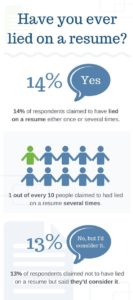
Reach us for Hiring the best candidates with the leading Recruitment consultancy at Hand Phone: +91 7795547089 or Email us at team@bssrecruit.com.
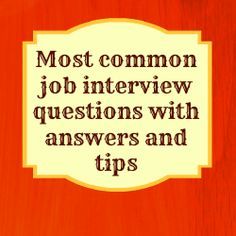
The perfect guide for nailing the most common interview questions employers ask
Common interview questions employers ask in an interview to candidates.A simple guide to answer the most common interview questions employers ask the employees.
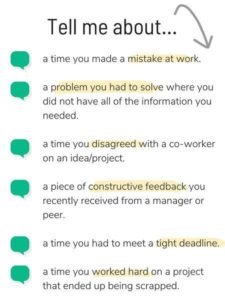
Interviews can be one of the challenging parts of trying to get a new job. When you’re selling yourself and your skillset, you need to have just the right answer for everything. You will get obvious questions like ‘why do you want to work for our team?’ to weird and wacky queries like ‘if you were an animal, what would you like to be?’ You should have a head start with the best answers. When you are not sure what interview questions you will get asked, it can be strenuous for you to get prepared.
Luckily, many recruiters ask the same or similar questions.
If you have an interview coming up, you can prepare by drafting responses to some of the most common questions. Read our tips from top interview experts and be more prepared at your interview than anyone else.
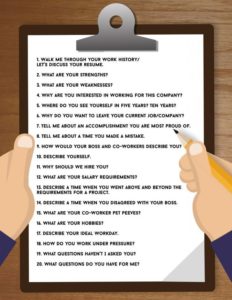
- Tell me about yourself?
Almost every interview will begin with this seemingly simple question, which is an ice breaker that meant to get you speaking. It’s an opportunity to introduce yourself. While you may get tempted to provide the interviewer with every detail about your professional and personal life, many aren’t looking for such a long-winded answer. They want to know whether your personality is a perfect fit for their company and see that you can handle the job. So keep your introduction precise and to the point. It’s not the time to recite your resume. Have a quick recap of who you are in a professional sense. Highlight what you’re most proud of, what suits the position best or what makes you right for the job. Your answer should focus on your professional experience and interests, and anything that shows you are the right candidate for the role.
- Why are you interested in this job?
Are you passionate about working for this organisation or are you just desperate for a job? The answer might be the latter, but it isn’t what most recruiters want to hear. They want to know that you are really interested in their industry and the firm. They want to see that you did fine research and you know about them and the role. It not only portrays that you are interested in the role but also speaks volumes about your professionalism and preparation.
- What are your greatest strengths?
It seems like an easy question as you know what you are good at, right? But be careful. Go through the job description carefully, and make sure whatever you say matches up with the way they have described the job role. Are they looking for candidates who are team players with leadership skills? Then, you should talk about your communication skills and public speaking. If you are anxious about coming across as cocky or arrogant, but the words in someone else’s mouth by telling them what people from your previous company have said about you. Another excellent tip is to use clear, measurable performances to back up you what you say – just ensure to have a relatable anecdote ready.
- What are your biggest weaknesses?
If you overshare here, you will potentially turn off a recruiter. Or else, if you say “I have no weaknesses, I’m perfect,” they will think you are a liar or completely lacking in self-awareness. So, what do you do?
Think about an actual weakness. But make sure you go with something that is not an essential requirement for the job. Explain to them how you became aware of it and are working on improving upon it. It shows that you are reflective, willing to learn, and striving to get better.
- Where do you see yourself within the next five years?
Job hopping is normal, and most employers know that people, especially young, ambitious people, are always looking for opportunities. You don’t, therefore, have to pretend that you’ll still be there in five years. Instead, tie in a dream job, ideally one at that company you can work towards with your passions, interests, and experience. It shows employers that you’re ambitious, driven, and looking for professional growth.
Every interview is different, but if you master these questions, you’ll get prepared to knock these cornerstone questions out of the park. Sometimes, a few exceptional answers are all you need to convince a recruiter that you are the one.
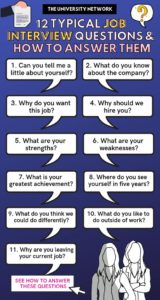
Reach us for Hiring the best candidates with the leading Recruitment consultancy at Hand Phone: +91 7795547089 or Email us at team@bssrecruit.com.

How to get prepared for your first job interview in the right way?
A first job interview is a maiden attempt by any candidate who is fresher in the job market. A few learning tips to be a topper in the first job interview.
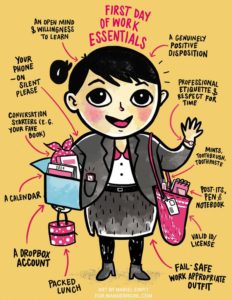
“A Job interview is like a first date. You dress up, pretend to be someone else and spend the time wondering if you are going to get screwed.”
— Azgraybebly Joslan
Finding and applying for a job might be a piece of cake with many job search websites. But when it’s time to face your very first interview, the thought can probably scare the hell out of you.
Fret not. Everyone newly arrives in the job market has to face their very first interview. You will probably approach it with the highest of hopes and confidence and possibly be in for a few surprises.
Preparing for a job interview needs more than just rehearsing your answers to some of the most common interview questions and answers. You never get another chance to make the first impression, so you should do your best in preparing for your interview in advance. Read the blog further to know certain things you must follow to make your first interview the best.
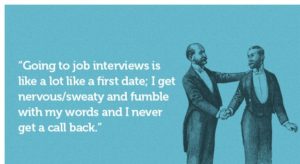
How to make your first job interview the best?
- Pick your outfit:
What you wear in your interview is a crucial part of how to get prepared for a job interview. After choosing your outfit, make sure it is cleaned and pressed, and you have the suitable accessories and shoes to go with it. You can try the outfit on ahead of time to ensure everything fits, and you look great. Then put the outfit aside for the interview day and have it ready to go. Now that you have this critical step out of the way, you can concentrate on the rest.
- Practice greeting your interviewer:
You should always greet your interviewer with a friendly smile and firm handshake. If you do this rightly, you will set off the right energy, and the chances of the interview going well will increase. It is a small and simple step that you should always to do to prepare for your interview.
- Study your resume thoroughly and know everything about it:
Any work expertise or skills you have listed on your resume are fair game to talk about during the interview. Your resume is all the recruiter has to go by to get to know you. They may pull things out from it and ask you to elaborate. Even though you may have a past job listed that was many years ago, the recruiter may ask you to describe what you did at that job, and you are responsible for presenting an appropriate answer. It is the one step you absolutely do not skip when you prepare for a job interview.
- Practice your answers to the most frequent interview questions:
If you have no idea about what these are, do fine research to figure out. Keep your answers ready and practice them. You should always be able to answer questions like
- Tell me about yourself.
- Why do you think you will be a perfect fit for this position?
The employer doesn’t know anything about you, so it’s up to you to sell it.
Don’t thoroughly memorize your answers, so they come out rehearsed but have a clear idea of what you are going to say. When they ask questions, your response should come out intelligently and naturally. Be open to other queries as well and know what you can offer to the company.
- Research about the firm and the job post you are applying for:
Write down any queries you may have, and you can ask them during the interview. If there any doubt regarding the job that you are unsure of, you should definitely ask during the time of the interview. It always looks nice to move into an interview with intelligent inquests. It shows you put endeavour into preparing for the interview. However, never ask just to ask questions. The interviewer will see right through that. Your questions should be genuine and relevant.
- Figure out the type of interview you will be going on:
There are numerous common types of interviews, such as one on one, group, and behavioural. So, never assume you will get a certain one. You can ask your hiring manager about the type of interview if you don’t have an idea about it. The interview will be more propitious to both parties only if you are well prepared.
- Print out the directions and be there on time:
Anticipate traffic and allow enough time to reach the venue. It’s ok to reach to ten minutes early, but no more than that. Or else, the interviewer may not be ready for you. Noting down the interviewer’s phone number will help in case you get lost or are going to be late. If you are reaching late, call and let the interviewer know about it.
Follow these useful tips, and you will successfully know how to prepare for your first job interview. Interviewers can easily identify whether a candidate has prepared for the interview or not. If you did, they would certainly appreciate it.
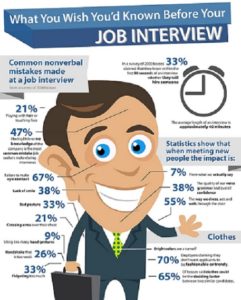
“Take the first step in faith. You don’t have to see the whole staircase, just take the first step.”
— Martin Luther King, Jr.
Reach us for Hiring the best candidates with the leading Recruitment consultancy at Hand Phone: +91 7795547089 or Email us at team@bssrecruit.com.

How your resume can stop you from landing on your dream job?
Landing on your dream job is quite an easy trick. Understanding of how the recruitment arena works will ensure the candidate is falling on his dream job.
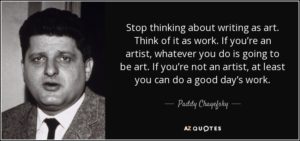
Many people often wonder why they never hear anything back after they attended an interview or send their job application to recruiters. If you’re fortunate, you might have a preliminary email exchange with a hiring manager and then never hear from them again. It’s a depressing experience, one which also adds a shadow on the reputation of the hiring company. So how does it happen? Is it because of you, because of them, or is it just something every candidate must prepare for in the hiring process?
If you are also one who is struggling to get interviews and landing on your dream job, your resume may be the culprit.
The competition for most jobs is intense, and recruiters are overwhelmed by a large number of resumes they receive for job openings. If your resume does not shine, there are chances that it will get passed over.
Want to a few reasons why you do not hear back after applying for a job? In this article, we have covered with five suggestions for ways to avoid the Resume Black Hole and how to get landing on your dream job.
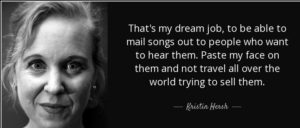
Five suggestions to avoid the Resume Black Hole
- No impact
You have about 20 seconds to seize your readers’ attention and hook them into reading more. It is common for hiring managers to look through several hundred resumes for just one job posting. With the odds stacked up against you, your resume must create impact and make an excellent first impression.
An employer wants to quickly figure out why they should invite you for an interview. If you are not providing this information clearly and compellingly, they will simply move on the next resume.
- Poor layout
Having a strong visual layout and appearance on your resume is just as powerful as the content. So be sure to use an appropriate format with distinct sections that allow the reader to find the information they are seeking quickly. A typical resume format will include the sections given below:
- Summary of Experience or Profile
- Significant Accomplishments
- Work Experience
- Education
- Training or Certifications
- Size matters
There is no set rule about the size of your resume, but conventional wisdom suggests that if you are a fresher or entry-level job seeker, you should have a one-page resume. If you have been working for over five years, then a two-page resume will probably make sense. You should make sure to include as much relevant information to convey your expertise in a way that demonstrates your fit for the job position.
Keep in mind that your resume isn’t your life story; if you find yourself going past page three; you should look for ways to pare it down.

Remember, you only get about 20 seconds to make your impression.
- Lack of accomplishments
The accomplishments section on your resume is your chance to shine and connect with the recruiter. Nowadays, organisations are looking for the best of the best. So, this section will give them a clear picture of why should you be the one they hire. Many candidates have a difficult time pointing to significant achievements, so here are some questions to ask you.
- What are the problems have you solved?
- What are the policies or procedures have you devised?
- Have you been chosen to train other employees?
- What have you changed or improved anything?
- Have you exceeded your goals?
- Have you won any awards?
- Have you received appreciation from management or peers?
If you mention these points in your resume, you will stand out and will get chosen by the employers easily.
- Poor Grammar, typos and mistakes
Over half of all resumes contain at least one error (!).
When hiring managers are looking to screen out resumes, an error or typo can make all the difference. The impression that errors in resumes make is that you are a careless person and do not possess the attention to detail required in many positions.
Be sure to read your resume numerous times, run it through a spell checker and then have at the minimum two people read it over as well. It is also wise to print out a copy of your resume as you may pick out errors or typos that you may have missed while reading it on your computer screen.
Having a subpar resume can keep you away from getting the interview. So, get the format and the content right. Know what to include and what not to include. Don’t let a sucky resume stand between you landing on your dream job.
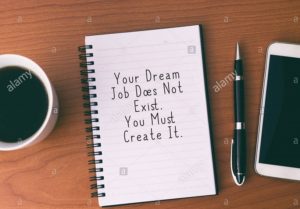
Reach us for Hiring the best candidates with the leading Recruitment consultancy at Hand Phone: +91 7795547089 or Email us at team@bssrecruit.com.
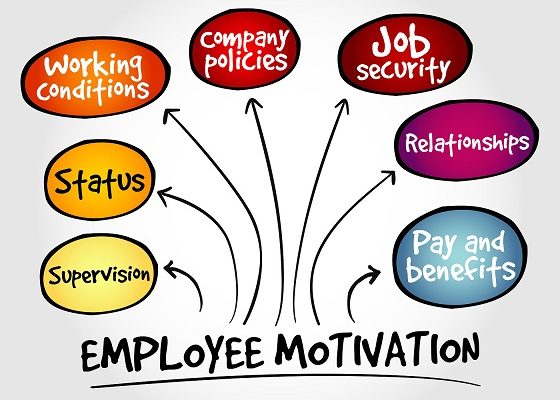
The key benefits of paying a competitive salary for top talents
Paying a competitive salary is an employers rituals to ensure his employees are giving their best in this competitive job market.
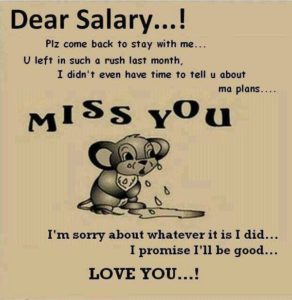
Your business may have an exceptional product or service. But the real strength of the firm lies with your people and top talent deserves to be well rewarded. While businesses need to cut costs and up returns, staff salaries should not be among the factors that keep on a tight budget. Because salary plays a crucial role when it comes to attract and retain the best people.
Employees are the prime aspect of any business. Where would your company be without them? As with training, benefits and salaries, your staffs are your most significant investment and what you put in influences directly on what you get back.
Strong staff salaries can deliver healthy returns. These are a few big reasons we think excellent salaries are worth it.
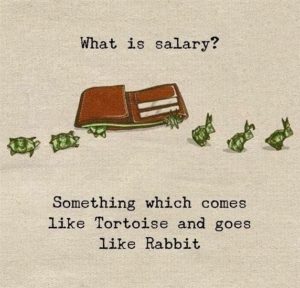
Four reasons why Paying a competitive salary is important
- Make them feel you know their value
Expecting staff to work hard for a cheaper salary than they would get elsewhere says one thing: you don’t appreciate their worth. Employee satisfaction is a principal player nowadays is why people apply for jobs. If people aren’t happy with your firm, they will look for a job hop. Nothing builds strong morale and work ethic, like feeling truly appreciated by your employer.
These are financial consequences that companies can avoid simply by instituting a competing salary policy. A high turnover rate also resonates poorly on a firm, impacting the collective knowledge base, and damaging staff morale.
So, ensure that the salaries you are offering are sending out the right message. You need to express that you are committed to your staff, that you appreciate them and that they get valued for what they do.
- Retention and attraction
In the skilled and professional jobs arena, the departure of an employee can cost their company more than double their annual salary. People think about job hop when they aren’t happy. Paying a competitive salary can not only attract the top-quality candidates that you need and keep the great staff that you’ve already got.
It is improbable that you will get qualified and highly skilled people applying to work at your firm when they are in high demand for good money elsewhere. If you offer attractive salaries, you’ll have the advantage of excellent candidates and the same vice versa.
- Investing in your assets
Like any investment, it takes some time to see a return. But providing benefits let your best employees stick with your business, which will pay off in the long run. Every firm needs people who will be there for the long haul.
- Those who can understand the business inside out,
- Can become a part of the growth and changes,
- And who are loyal to the company’s future.
Keeping up with salary trends and staying competing will assure you always keep a range of long-standing employees under your roof. A big win for employer brand is a big win for your investment.
- A competitive salary shows you care
Paying a competitive salary package incentivises ensures your employees to do their best for the organisation, promotes employee engagement and encourages loyalty. When you carefully construct salary policies, it shows you are committed to your team, and this in itself can be a great incentive for your staff.
Having proper salary policies is a tangible way for an organisation to show its commitment to taking care of its people. Your concern for the wellbeing of your staff filters through to office morale and productivity, and will hopefully get reciprocated if the business finds itself facing tough times.
An unhappy workforce cannot work properly. It can affect your business badly, bringing huge costs to your business. So, see your team as an appreciating asset and offer them the best. Because, satisfied employees who enjoy what they do become more valuable for your business over time as they acquire new skills, knowledge and experience.
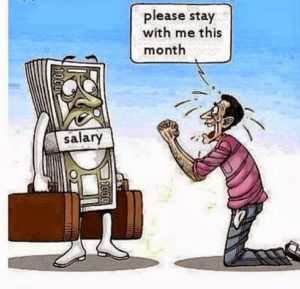
Reach us for Hiring the best candidates with the leading Recruitment consultancy at Hand Phone: +91 7795547089 or Email us at team@bssrecruit.com.

How offering a flexible working schedule for employees to benefit employers?
The flexible working schedule for employees is the new mantra for employers seeking to maximise the employees potential.
“In the right roles and with the right people, flex does offer tremendous productivity improvement. It gives people time to process properly, and it gets them out of the office in terms of being bogged down in day-to-day admin. So there is more thought leadership that comes to the table, and that’s where your creativity and innovation come in.”
— Osman Khan, Cofounder and CEO of Paddle8
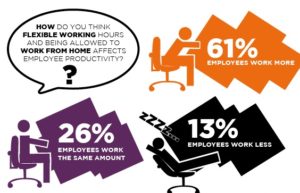
The flexible working schedule for employee sare among the essential things on the wish list of many employees. Nowadays, flexible working hours are becoming crucial due to the benefits it gives to employees and employers. Greater employee productivity and higher organisation profitability are the most common benefits of flexible working hours.
- Employees get the freedom to adjust their working hours and social life.
- It also helps them to plan the time they arrive and leave the office.
- It can be easy and possible, depending on the type of work and the discipline of employees.
The flexible working schedule for employees considers as one of the best perks an employer can offer. It is a way of appreciating people’s lives outside of work and trusting them to prioritise when and where they work on projects and complete them. The versatile working schedule doesn’t only benefit employees but employers too. Dive into the blog to know the five benefits of flexible working.
“People today really value workplace flexibility and remote work because it allows them to focus their energies on work and life as opposed to commuting or other complications due to geography.”
— Ken Matos, Vice President of Research, Life Meets Work

Five hidden benefits of flexible working schedule for employees
- Attracting talent
Recruiting and retaining talented employees is a topmost priority for almost every business to reach success. But, with today’s lifestyles, more professionals are looking for more flexible options. And the younger generation isn’t tied to the idea of a physical presence being necessary to get work done. So, offering flexible working hours can attract the best candidate for your business.
- Employee productivity
There is nothing worse than holding an employee at work who doesn’t want to be there. Why? Because they are absent-minded and not being productive. By giving people the ability to be in control of their own working lives, their productivity can improve drastically.
A study shows that productivity proliferates when an employee can work remotely from anywhere they are comfortable. For those working at home, they can manage their time wisely and might start working even earlier and finish earlier.
- Reduce staff turnover
Many employees who get flexible working opportunities see this chance as a sign that the company values them. It gives room to be more efficiently even when they are working remotely. Many employees will prefer to continue working in an environment that offers them such freedom. This factor will diminish the rate of turnover.

“We need to take a more flexible approach to both the workplace and the work we do; one that provides us both the physical and cognitive space to harness the incredible power, insight and experience we offer, but focused not on the individual processes but instead on the overall outcomes our organisations are seeking to achieve.”
— David Coplin, Chief Envisioning Officer of Microsoft UK
- Increases Room for Creativity
Happy and satisfied employees are those who get the chance to work on a flexible time schedule. It proffers a room for thinking outside the box and be more innovative. Although it might not be the case for some employees, spending a long time in the same ambience can limit the creative possibilities. A change of work environment can be a catalyst for creativity to employees.
Depending on work processes, some employees get more actively involved in ongoing projects or general working culture when they reach the office at flexible times. It is the reason employers should consider the nature of work and the type of employee when arranging flexible hours.
- Supports Employees Well Being
One of the critical benefits of flexible working hours is it boosts employees’ morale and improves their physical and mental wellbeing. The wellbeing of the employees is a severe concern for many employers, and implementing flexible working schedule can secure employee wellbeing. When employees have adaptable working hours, they are likely to be less fatigued. Spending a few hours at work can also prevent burnout and stress that can be the result of toxic workplace culture.
The appropriate use of flexible working hours can benefit both employees and employers. Employers are more concerned about how millennials are adjusting to working lifestyle. For millennials, work-life balance is an essential factor when choosing their jobs.
Millennials are creative and have potentials to do better than other generations; this might be due to current advances in technology that enables more work to get done more efficiently. So, with flexible working hours, much can be accomplished by the employees who will get the chance to experience that. With this, they can work harder than ever to deliver results.
“Technology now allows people to connect anytime, anywhere, to anyone in the world, from almost any device. This is dramatically changing the way people work, facilitating 24/7 collaboration with colleagues who are dispersed across time zones, countries, and continents.”
— Michael Dell, Chairman and CEO of Dell
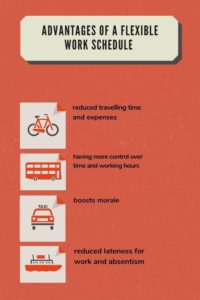
Reach us for Hiring the best candidates with the leading Recruitment consultancy at Hand Phone: +91 7795547089 or Email us at team@bssrecruit.com.
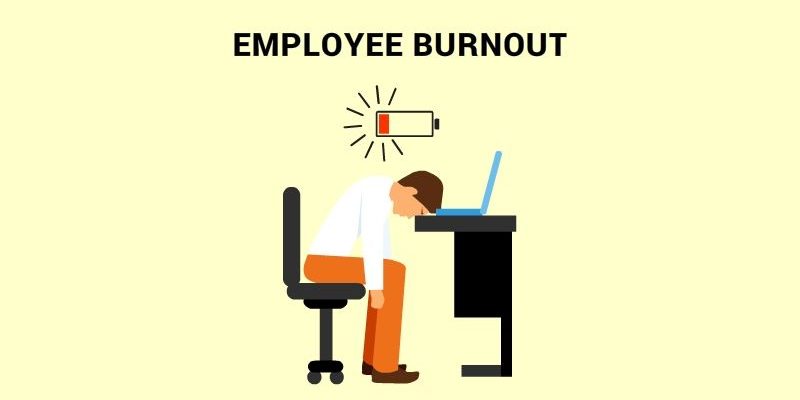
Insanely powerful ways you should follow for helping burn out employees
Burn out employees is one of the significant workspace issues these days. It occurs when immense pressure is put on a person, culminating in “chronic stress.” This pressure could be caused by one or numerous things, depending on the person’s situation.

At work Burn out employees signs could be
- Job insecurity.
- Lack of feedback can lead to anxiety and uncertainty.
- Clashes with other staff members.
- Feeling undervalued.
- Not feeling like a team member.
As an employer, you should ensure your workers remain motivated and productive. But sometimes, even the best performer of your team can begin to struggle to burn out employees. In those cases, you need to pay attention to them to recognise any problems they may be facing and get the right action before it’s too late. Use these best tips managers can use to help valuable employees get back on track even during times of stress or boredom to be a burn out employees.

The best tips to help your valuable employees get back on track from being a burn out employees.
- Ask and listen.
It’s essential to have a sit-down meeting with them and learn more about what’s bothering them to understand how you can help them.
By having an honest discussion with your employees, you can discover if they are stressed or fatigued or if there is something more going on. Ask questions, but also be calm and listen to the answers rather than relying on what you think you know.
- Change it up and be understanding.
It’s necessary to keep in mind that employees may often be hesitant to let you comprehend they are stressed or annoyed because they don’t want this to affect their job security. The situation becomes more critical when bosses take these complaints wrong. So, instead of taking it personally or assessing the person for it, work with them to change up the work or proffer them a break. Understanding and working collectively in a communicative, open way goes a long way.
- Offer more flexibility.
Once you figure out what’s going on, it’s essential to offer employees more flexibility. Being in the very environment for hours at a time, five days a week would make anyone go insane after a while.
Flexible options management could offer to include Fridays off or permitting employees to work from home a few days. It reveals them you care for them, and their gratitude will manifest in the quality of their work. When employees feel in control, they are more productive and less stressed.
- Give them a side project.
When it comes to eradicating the potential for boredom, it’s crucial to provide a task that is high interest but low priority. While talking about the significance of helping your employees feel challenged enough to stay with your company.
However, designating side projects can backfire if you’re not attentive of how much hours employees need to pay on them, which can possibly lead to them feeling overworked. Side projects may involve a lot of responsibility or planning. So, tell them to focus on that when they have time.
- Create friendly competition.
Another way of keeping employees engaged or helping them get through a stressful time is to create a friendly competition. For instance, create a monthly work-related challenge to compete in. It’s work-related, so it helps them recapture their enjoyment for their responsibilities and acquire new things, but at the same time, it lets them have a little fun, as well.
- Encourage them to learn new skills.
Encourage employees to have an interest in something they do not know. Encouraging to learn something new either from books or online courses is a good alternative for tired employees to refresh themself. And always remember that their growth is also part of your firm’s growth.
- Set appealing long-term goals.
One of the most motivating aspects for an employee is the knowledge that they have a clear target to work toward every day. Boredom and burnout at the job can be a result of tunnel vision. Your team members may not be able to focus on the big picture if the daily grind is too distracting. To mitigate this issue, remind your team of the long-term goals they’re working toward. For making these goals even more appealing, employers could also tie them to performance-based bonuses.
Remember, burn out employees is a serious issue. It’s not just your employee’s work that suffers, but their health, mental state, and the lives of the people around them.
Burn out employees doesn’t have a cookie-cutter fix. But you must fix it if you want to reduce employee turnover, absenteeism, or poor customer experience. Do whatever you can to fix the damage, and get your employees on the track to maintain the right work/life balance.
Reach us for your recruitment needs at Hand Phone: +91 7795547089 or Email us at team@bssrecruit.com.

Why is employee engagement worth for your company?
Employee Engagement: The state at which there is correlative confidence between the employee and leadership. To do what’s accurate. However, whenever and with whomever.

“Motivating employees to work at their full potential is the main premise of successful management.”
— Eraldo Banovac
How do you make employees capable of going the extra mile and performing at the peak of their potential? Some say job satisfaction and happiness are pivotal elements of exceptional employee commitment. But it is not enough. The real key to outstanding commitment and performance is employee engagement.
What exactly is employee engagement?
- Employee engagement is forming an energetic and enthused workforce that puts its heart and soul into everything it does.
- It is a priority at every level of a business, and organizations with engaged employees outperform those with lower engagement levels.
Here are seven ways to generate engagement and get your employees charged up about going to work in the morning.
“Research indicates that workers have three prime needs: Interesting work, recognition for doing a good job, and being let in on things that are going on in the company.”— Zig Ziglar
Seven ways to develop employee engagement in your workplace
- Appreciate your employees
A business that misses appreciating its employees will surely suffer. By contrast, those that express appreciation often observe a spike in engaging employees. Recognition can come in various forms. Managers can send out personal emails to employees complimenting them on a job well done. Or the company can bestow its appreciation via social media posts or at companywide gatherings.
No matter how it gets done, recognition can boost the confidence of your employees and encourage them to take on more responsibility. Letting employees acknowledge that they are appreciated can positively impact on their commitment.
- Create a Collaborative Culture
Engagement falls flat when employees get entangled in a culture of poor communication, tight deadlines, and countless, unproductive meetings. Designing a collaborative culture that champions teamwork and breaks down silos will let employees be their real selves and help them feel secure about sharing both their successes and their failures. A collaborative culture can also help strengthen trust and good harmony among your employees. It enables employees to cross lines that demark bounds of expertise, getting them to engage more deeply in the overall success of the firm. By being open and available, you are fostering a positive work atmosphere that leads to a more thriving business.
- Recruit Team Players
Recruit people who like to work in teams. That’s the way of today’s business world. Reclusive corner-cube, subject matter experts who may the best be left alone are evident in today’s workplace. Work has become intensively collaborative. Teams accomplish all missions. Ownership and accountability often get distributed. If you want to develop a highly engaged workforce, you need to be remarkably selective in your hiring. Engagement begins right at the first job interview. Ensure your hiring process is engagement-centric by screening for candidates who can thrive in a team-oriented workspace.
- Level up Your Performance Reviews
Yearly performance reviews can provide employees with tons of comments and feedback but could come off as process-driven and routine. Consider executing a continuous, year-round feedback loop instead. It includes formal meetings or even informal engagements, often ad hoc, where employees and supervisors engage after finishing the work. This way, feedback is authentic, timely, and more unbiased. Managers can measure employee performance and address concerns early before they become a big problem. Employees have straight and immediate context for this feedback. You can further involve your workforce and raise achievement with 360-degree feedback and peer-to-peer reviews that let you promptly gather insights about each member of the team.
“There is little success where there is little laughter.”
— Andrew Carnegie
- Encourage the Free Flow of Ideas
The pleasure and pride we feel when our ideas are accepted and implemented are invaluable. When employees feel that you consider their opinions seriously, regardless of where they stand in the company hierarchy, they’ll volunteer more often, adding more exciting ideas and resolutions. Innovation happens best this way. The judgment-free brainstorming sessions spark creativity and allow your employees to come up with smart ideas. They pose questions, appreciate contributions, make suggestions, and don’t say anything demotivating, even if you don’t agree with an idea.
- Invest in Career Development
Work might change, but human nature doesn’t. Most of the people seek to enhance their strengths and reach their full potential. Your employees should recognise that you care about their growth and that new opportunities are waiting for them just around the corner. Prove this by investing in training them for their growth. Offer a rotational program where they get to encounter new and different areas of the business. Create career maps that encourage employees to explore their career advancement possibilities and envision areas of growth. For instance, if you hire an employee who speaks French, train that employee to help you launch your product internationally. You might just uncover an entirely new skill.
A business succeeds when employees are engaged and raring to go. The workplace you design can go beyond mere employee productivity and can drive deep engagement. Show your workforce that you care, and they will go the extra mile.
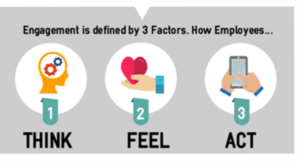
“Engaged employees are psychological “owners,” drive performance and innovation, and move the organisation forward.”— Gallup Report 2017
Reach us for your recruitment needs at Hand Phone: +91 7795547089 or Email us at team@bssrecruit.com.

The best shortcuts to choose between two-star candidates
Two-star candidates in the shortlisting stage are quite a situation to handle for a recruitment professional.

As a recruiter or hiring manager, the recruitment process can be extensive and potentially overwhelming. Still, sometimes you get to the end of the road, and you just can’t make up your mind between the two final candidates. They may have very similar qualifications, work experience and excellent references. You have tested them several ways, but you still don’t know which one to pick because two-star candidates are both well capable of handling the job.
We know that it is a difficult situation for you, but at the end of the day, you need to decide on the best person for the position.
- So, how do you go about a situation like this?
- What steps can employers take to choose between two equally qualified candidates effectively?
In today’s article, we examine a few factors you should look at when you are struggling to choose one candidate over another or a choice between two-star candidates.

- Focus on the mission-critical skills
Take a close glance at the job description and re-focus on the two or three mission-critical skills. Consider the inner strengths and weaknesses of your company, as well as the opportunities and threats the team encounters. Although your candidates are likely to have a different balance of skills, even though, they are equally qualified. So, if you take a closer look, one candidate may be better fitted to the position than the other.
- Conduct a 360-degree assessment
Don’t be stopped by the potential cost and administrative hassle of an additional interview; if necessary, invite them in for a further discussion. It could be a 360-degree interview where you let them interact and engage with co-employees, subordinates, superiors, internal clients and suppliers. This 360-degree perspective may help to assess which person best suits your mission-critical skills, making it easier for you to decide the right one. It could even avert the less keen applicant, further informing your selection decision.
- Gauge their enthusiasm
One way to do this is to probe them how enthusiastic they are about the job role, but it will be more effective if you get them to demonstrate enthusiasm by putting an obstacle in the way. Invite them in or at least assess their interest in attending a trial morning where they can compete in a meeting or present to the team. Gauge their enthusiasm;
- Do they seem willing?
- Will they move mountains to show up and do they make proactive suggestions?
- Also, consider what barriers they have had to surmount in the interview process.
- Has one had to put more endeavour in than the other to get this far, e.g. a greater interview commute?
It may soon become evident that one candidate is much keener than the other on the opportunity.
- View them in a relaxed setting
It is a perfect opportunity to throw a curveball and invite them in for an informal interview in a comfortable environment where they may perform in a way that they haven’t done during the formal assessment process. You may see another angle, perspective, strength and weaknesses, which might tip the balance into one candidate’s favour. You will also be able to understand just how well they get into the culture, which could determine their fitness for the job.
- Put them on the spot
Another alternative is to put each of the two-star candidates on the spot. Of course, you can’t offer them both the job, but you can suggest to each of them, that if you were to provide them with the job, what would be the obstacles to acceptance and how would they strive to overcome them.
- Assume terms can be agreed, enthusiastic, serious candidates should be able to answer an emphatic yes.
- Do not list too many barriers to them joining.
- Recognize ways to overcome barriers, such as, “I am sure we could come to some sort of agreement on that particular issue.”
Young professionals who are in quest of a great job will always be there in the market. But you must find out who the best is really and who should have a place in your office. The quicker you make your choice, the faster you will be hiring the person who is ideal for your company. Never make a hasty decision, though. Think of the current things that your company needs. Who do you think will be able to provide with the best.
All the best for your next tight hiring decision!

The best way to Hire the best talents is to reach the best Recruiting firm. we can be reached at Hand Phone: +91 7795547089 or Email us at team@bssrecruit.com.
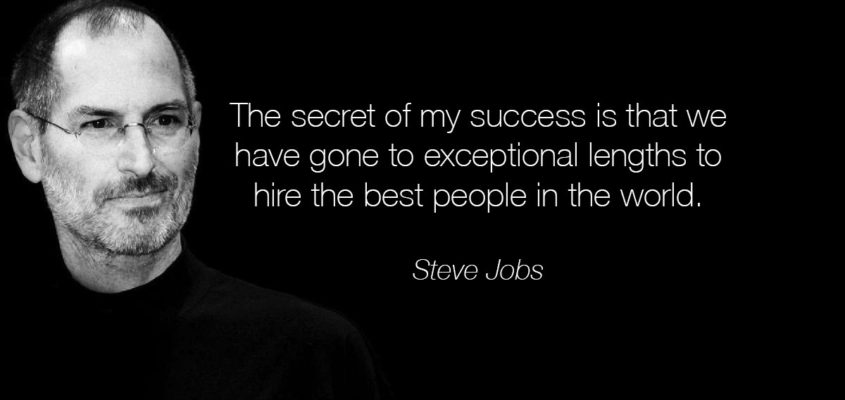
The most effective tactics to maximize hiring the best candidates
Hiring the best candidates who are smarter than you are. Whose talents surpass yours. Give them opportunities for growth. It’s the smart thing to do,
“Hiring people is a form of investing. You have to do your research and make sure you are spending your resources on the right pick.”— Warren Buffet
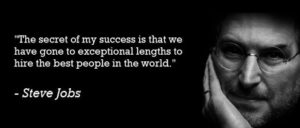
Everyone knows that talented employees are inevitable to the success of an organisation. If your firm has the brightest and the most creative minds, then you can win all the corporate goals. But while employing skilled team members to innovate and produce excellent results is a prerequisite of success, it is equally essential to avoid ill-equipped and poorly performing players. After all, a chain is only as strong as its weakest link.
Unfortunately, bad hires are an all too common occurrence in the business world these days. But where are managers going wrong, and how can they avoid hiring ill-equipped candidates? At the end of the day, how will they provide the company and clients with candidates that are going to make an impact? Read the blog further to know how great recruiters succeed in picking out the ideal candidate.
“Hiring people are like making friends. Pick good ones, and they’ll enrich your life. Make bad choices, and they’ll bring you down.”— Jason Fried
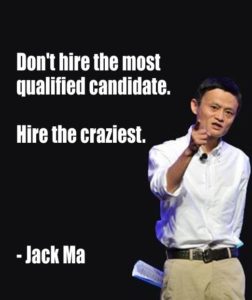
How to succeed in recruiting the ideal candidate?
- Keep the big picture in your mind
Have a clear strategy about your company in mind that you can refer to whenever you are looking to fill a position. You can keep it on a sticky note, typed in your smartphone or simply note it on your memory. When learning about a potential candidate, thoroughly check if their character, skills and experience are the best fit for leading your organization to grow. Ask yourself, “Will this person help my firm reach our ultimate vision?” If you can’t assuredly answer yes, it’s time to keep sourcing.
- Dig Deeper
We all know that holding the right skills is not sufficient to qualify a candidate as the right hire. As a recruiter, your job is to hunt down the candidates who are not only qualified for the job but also fit for the company culture. Ask the right queries and don’t be hesitant to dig a little deeper in the interview process. Identify which values or characteristics your successful employees commonly possess, and then develop interview questions that help pick out the candidates with similar qualities.
- Think outside the Box
Emphasize the job requirement rather than the skills. If a candidate has previously worked in a similar job, they probably have the skills or the ability to learn it. So, instead of listing every skill your candidate should possess, clearly explain the key job expectations. It will help enhance your talent community by including a more diverse group of candidates with diverse expertise and backgrounds without sacrificing the quality of hire.
If you want to recruit passive candidates, you need to figure out how to target them effectively for a career move. Try to visualise the career story of your top three ideal candidates.
- For which roles did they apply before?
- What are the skills they possess that made them a perfect fit in the current position?
Once you have answered these type questions, you will have a clear idea of how to make your job postings resonate with inactive candidates.
A company should limit its growth based on its ability to attract enough of the right people.”— Jim Collins
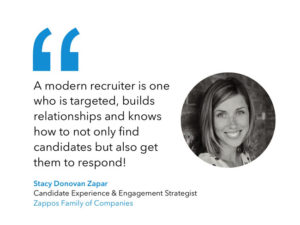
- Improve yourself constantly
Master and strengthen all your sources for candidates. It includes raising the yield and quality of applicants coming in via your job posting efforts. To do this, relentlessly analyse what makes a job posting compelling, try new marketing tactics, test your actions and use what you have learned to strengthen your job ads. Also, stay up-to-date on the latest recruiting news and best methods so that you can leverage the information.
- Nurture your Talent Community
Regularly reach out to candidates in your Talent Community to examine what’s new with them, if they have gained any new skills, or if they have referrals to suggest from their personal network. You can keep in touch with the new and old contacts via the phone, email, message, or physical gatherings. The amount of input you invest produces a corresponding volume of output. That’s why it’s so crucial for recruiters to create and sustain connections with their Talent Community, past clients and alumni.
The main outcome is that you need to initiate communications to enhance awareness for your positions. So, become an exceptional networker, who is proficient in recruiting passive candidates.
- Track Metrics
Identifying the results of your attempts every day is the best way to improve your hiring practices. Utilize analytical tools that help you comprehend your recruiting initiatives from a high-level perspective. By reviewing cutting recruitment metrics, you can decipher which recruiting strategies are working and which are not. Then, you can rearrange your efforts to maximize your ROI.
- Be Proactive
Instead of concentrating entirely on current open requests, start thinking about the future recruiting needs of your firm.
- Are specific departments growing?
- Are any leaders planning on leaving soon?
Based on your firm’s expectations, start developing a robust talent network of prospective candidates who would shine in the roles that may become available. As a result, you will be prepared to the source once the organisation decides to hire for the vacant chair.
Becoming an excellent recruiter takes persistence, strategy, and the passion for connecting organizations with the right candidates. If you have the determination to succeed, coupled with the right tactics and tools, you can start aggressively honing your recruiting skills today. Try incorporating these seven recruitment best practices into your day-to-day functions to improve your actions and produce great results.
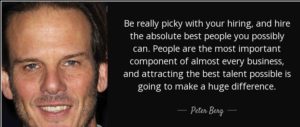
“Lots of people want to ride with you in the limo, but what you want is someone who will take the bus with you when the limo breaks down.”
— Oprah Winfrey
Reach us for Hiring the best candidates with the leading Recruitment consultancy at Hand Phone: +91 7795547089 or Email us at team@bssrecruit.com.
End of content
No more pages to load




